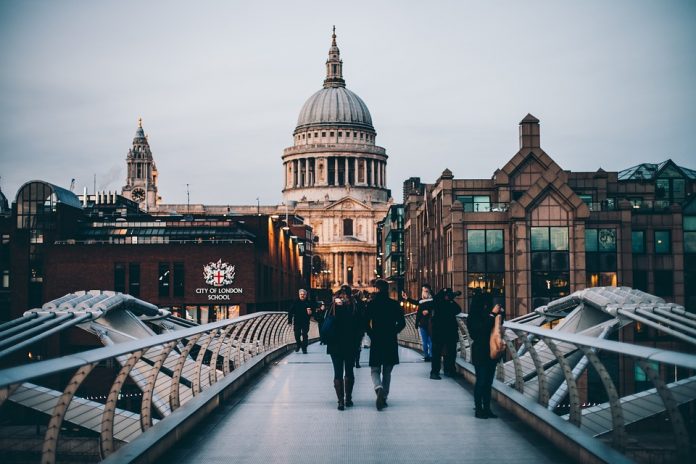This article is written by Atul Agarwal, pursuing a Certificate Course in Arbitration: Strategy, Procedure and Drafting from Lawsikho.com. Here he discusses “What are the 5 most important arbitration destinations around the world?”.

Introduction
Arbitration is the settling of legal disputes privately and behind closed doors outside the public court hearing system. The improvements are that parties can decide the location and the language used for the hearings as well as choose the arbitrators. In international trade, arbitration is the preferred method of dispute settlement over litigation, since it is faster and easier to enforce an arbitral award than a court decision, in a foreign State.
Multilateral conventions and bilateral treaties among countries facilitate enforcement of foreign arbitral awards in an effective manner. Enforcement of arbitral awards is easier, because of the prescribed nature of the arbitration process itself. It is easier for a court to enforce the consequence of an agreement between two parties than a decision representing the authority of a foreign State (in the form of a court decision). The tendency in the international convention is to facilitate enforcement of arbitral awards for faster resolution.
Foreign Awards
A foreign award means an arbitral award on disputes arising between parties belonging to different nationalities, whether in a contractual or non-contractual relationship.
Top Five Destinations
The top five foreign destinations preferred are :
- Singapore
- Hong Kong
- London
- Paris
- Geneva
Singapore
Most of Asia is still a developing region in the world. And in this region, Singapore and Hong Kong have emerged as one of the prominent economies. It is usually known that every venture faces the risk of execution and effective enforcement comes when there is an operative dispute resolution machinery in place. Singapore has maintained a steady path to promote its jurisdiction as an arbitration-friendly and pro-business community. In 2008, the International Court of Arbitration of the International Chamber of Commerce (ICC) decided to establish its Asian offices in Singapore.
Singapore is challenging the established centres for arbitration such as London, Paris and Stockholm. According to a Financial Times report dated 03.06.2016, case filings at the Singapore International Arbitration Centre (SIAC) have increased by more than 300 percent in the past 15 years. In 2000, Singapore handled fifty-eight cases however numbers rose dramatically in the years to come. In 2015 there were 271 filings. By distinction, the London Court of Arbitration had 326 arbitrations referred to it in 2015, up 10 percent in 2014.1
One of the important contributing factors for Singapore emerging as an attractive arbitration destination is its geographical location and trade links – at the crossroads of South East Asia, and in between the sea lanes of communication that are located across China and India.
The Business Inc. perceives Singapore as a neutral venue for arbitration, and the strong ranking of the country in corruption indices (ranked third) reinforces the legislative environment. In turn, Singapore’s legal regime is supported by a world-class arbitration infrastructure.
The attraction of arbitration in international business transactions in Singapore is attributable to the following:
- Strong rule of law,
- Arbitration legislation based on the UNCITRAL Model Law on International Commercial Arbitration 1985 (UNCITRAL Model Arbitration Law),
- Supportive judiciary,
- Confidentiality of arbitration proceedings, and
- Cutting-edge arbitration facilities at Singapore’s Maxwell Chambers
Hong Kong
Most reasons given above to explain why Singapore is an important arbitration destination would apply to Hong Kong as well.
Till the recent past, there was no specific legislative provision addressing the arbitrability, or otherwise, of an IPR related dispute in Hong Kong. The Arbitration (Amendment) Bill 2016, introduced into the Legislative Council on 14 December 2016, sought to insert such provisions by way of a new chapter which define terms relating to IPR disputes, confirm that such disputes may be arbitrated, clarify the status of licensees who are not party to the arbitration and provide that an arbitral award may not be set aside, or refused enforcement, only because the award involves an IPR.
Further, on 1st November 2018, the Hong Kong International Arbitration Centre’s new administered arbitration rules came into effect. The 2018 HKIAC Rules introduced impactful changes that improved the efficiency with which disputes were resolved and added flexibility and cost management to parties engaged in increasingly complex transactions.
The highlights of the aforesaid rules were:
- a refinement to emergency arbitration procedure;
- new early determination procedure;
- the requirement to disclose third party funding;
- more encompassing provisions for bringing a single arbitration under multiple contracts, concurrent proceedings and HKIAC’s role in joinder applications; and
- deadline for the delivery of awards.
The 2018 HKIAC Rules apply to all or any arbitrations during which a notice of arbitration is submitted on or after 1st November 2018, where the arbitration agreement provides for HKIAC administered arbitration.
Also, the median duration of an HKIAC arbitration is of less than a year, and is broadly comparable to that of the SIAC, but compares favourably to the figures of the London Court of International Arbitration. Median tribunal fees for HKIAC arbitrations (US$19,587.63) are approximately US$7,300 lower than those for the SIAC.2
London
The nature of English law and the common law traditions make London an important destination for hosting arbitrations. A specific component that has specific attractiveness to businesses is that the general importance connected to English law to the principle of freedom to contract. Furthermore, arbitration in London is preferred by many parties because of the discretion advantages that are provided. English Law, in general, attaches significance to the confidentiality of attempts to resolve arbitration disputes.
A further advantage of arbitrating in London is the knowledge and skill of many legal professionals and arbitral bodies in dealing with international matters. Half of the world’s leading law firms are based in London. England, and more importantly London, has been a centre for international trade for many centuries.
The UK is a party to the New York Convention 1958 which assists the enforcement in the 140 other party states of arbitration decisions made in London.
London continues to receive competition from New York, Dubai, Singapore and Hong Kong yet the advantages of English law with its domestic traditions and international capabilities make it a rather lucrative destination for parties to resolve matters by way of arbitration.
Paris
France has developed a legal system favouring arbitration, particularly in the case of international arbitration. The system has been set up through various reforms and case law creating a solid tradition of judicial non-interference of French courts in the arbitral process.
The country is a party to many international and European conventions aiming to simplify the recognition and enforcement of foreign arbitral awards and prohibits any challenge on merits against such awards.
Except for exceptional situations, it is very difficult, in France, to prevent arbitration proceedings from taking place or to set aside an arbitral award. The enforcement of arbitral awards is easily facilitated in France. Recourses against arbitral awards or against decisions granting enforcement are not suspensive and said recourses seldom forestall the enforcement of the arbitrational awards they challenge.
From a logistical standpoint, Paris provides numerous hotels and conference centers, close to international hubs (airports and stations), where the parties, their counsels, arbitrators, court reporters and interpreters can meet with ease.
Geneva
Switzerland’s multi-lingual and federal nature, its geographical position in the center of Europe and its small size encourages Switzerland’s lawyers to develop cross-cultural skills to find mutually acceptable solutions for all types of disputes and to act for parties belonging to different countries involved in disputes. The ability to deal with different legal problems including the aforesaid characteristics has led to the development of a sophisticated arbitration bar comprising many of the world’s best-known arbitrators.
Geneva has long been at the forefront in the development of international law and arbitration. As an example, in 1872 the governments of the United States and Britain decided to settle a dispute over the U.S.’s claims for damages against the UK arising from the British role in building the Confederate warship, by arbitration in Geneva rather than resorting to war. Since then Geneva has been taking part in a number one role as a current hub of international arbitration.
Further, the Swiss Chambers of Commerce (“SCC”) has been offering arbitration services for more than 150 years. And with the Swiss Rules of International Arbitration, they offer a uniform, efficient and cost effective methods of binding dispute resolution based on finest practices and international standards. Arbitration under the Swiss Rules is administered by the Swiss Chambers’ Arbitration Institution (SCAI), a body comprised of experienced international arbitration practitioners who act in complete independence.
Even more, contrary to state court judgments, arbitral awards rendered under the Swiss Rules are confidential. Owing to a variety of international conventions they are easier to enforce on a worldwide basis than court judgments. Swiss Rules arbitration can be customized according to any budget and type of dispute, and can even be combined with conciliation or mediation.
Conclusion
It is generally seen that India is not most favored as an International Arbitration destination principally due to reasons like time, judicial intervention, costliness, struggle in enforcing both domestic and international awards, and the independent grounds for appeal based on public policy. These are major issues that deter foreign investors and parties from picking India. Research and preparation are required to be done before arbitration. If the government is willing to work on the problems, then India can emerge as a leading target for international arbitration.
Endnotes
- https://www.ft.com/content/704c5458-e79a-11e5-a09b-1f8b0d268c39
- Matthew Townsend, ‘Arbitration in Hong Kong: The Year of the Monkey in Hindsight’, Kluwer Arbitration Blog, February 25 2017, http://arbitrationblog.kluwerarbitration.com/2017/02/25/arbitration-in-hong-kong-the-year-of-the-monkey-in-hindsight
Students of Lawsikho courses regularly produce writing assignments and work on practical exercises as a part of their coursework and develop themselves in real-life practical skill.
https://t.me/joinchat/J_0YrBa4IBSHdpuTfQO_sA
Follow us on Instagram and subscribe to our YouTube channel for more amazing legal content.
 Serato DJ Crack 2025Serato DJ PRO Crack
Serato DJ Crack 2025Serato DJ PRO Crack











 Allow notifications
Allow notifications


